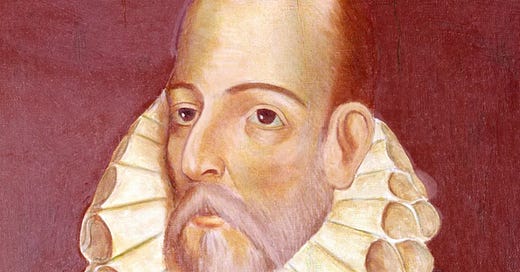"The pen is the tongue of the mind."
Miguel de Cervantes
Miguel de Cervantes, born on September 29, 1547, was a Spanish writer widely regarded as one of the greatest authors in Western literature. His most famous work, Don Quixote, is often considered the first modern novel and has had an enduring impact on literature and culture.
This quote succinctly captures Cervantes’ belief in the power of writing as an expression of thought, emotion, and intellect. For Cervantes, the written word was not merely a means of communication but a direct conduit through which the mind could convey its deepest reflections and most complex ideas. Just as the tongue enables speech, the pen allows thoughts to be articulated, preserved, and shared with others.
In Don Quixote, Cervantes explores the interplay between reality and imagination, often blurring the lines between the two. The novel’s protagonist, Don Quixote, is an aging nobleman who becomes so enraptured by tales of chivalry that he sets out on his own quest to revive knighthood, despite the world around him having moved on from such ideals. Through Quixote's adventures, Cervantes examines themes of idealism, the power of storytelling, and the human condition. The novel itself is a testament to Cervantes’ belief in the potency of the written word; it transcends its time to comment on universal truths and human nature.
Cervantes' quote also reflects the Renaissance humanist ideals that were influential during his time. The Renaissance was marked by a revival of interest in classical learning and a belief in the importance of the individual’s capacity to reason and create. Writing, in this context, was seen as an essential tool for shaping, influencing, and preserving culture and knowledge.
Cervantes’ own life was as eventful as his fiction. He was a soldier, was captured by pirates, and spent five years as a slave in Algiers before being ransomed. These experiences informed his worldview and his writing, lending a sense of depth and realism to his characters and stories.
Through this quote, Cervantes emphasizes the role of writing in capturing the essence of human thought. His work continues to be celebrated for its wit, wisdom, and insight into the human soul, with Don Quixote remaining one of the most influential works in the literary canon.




